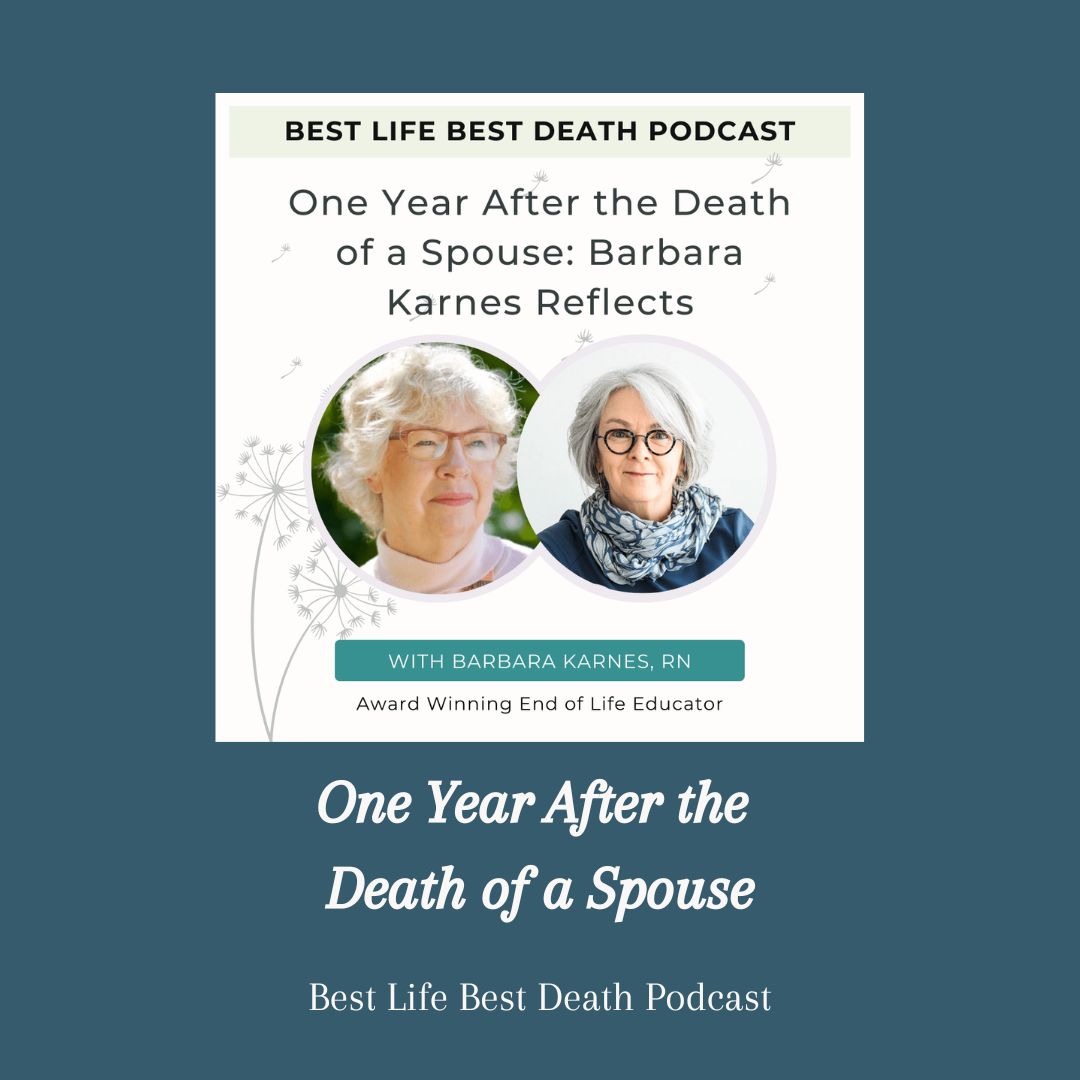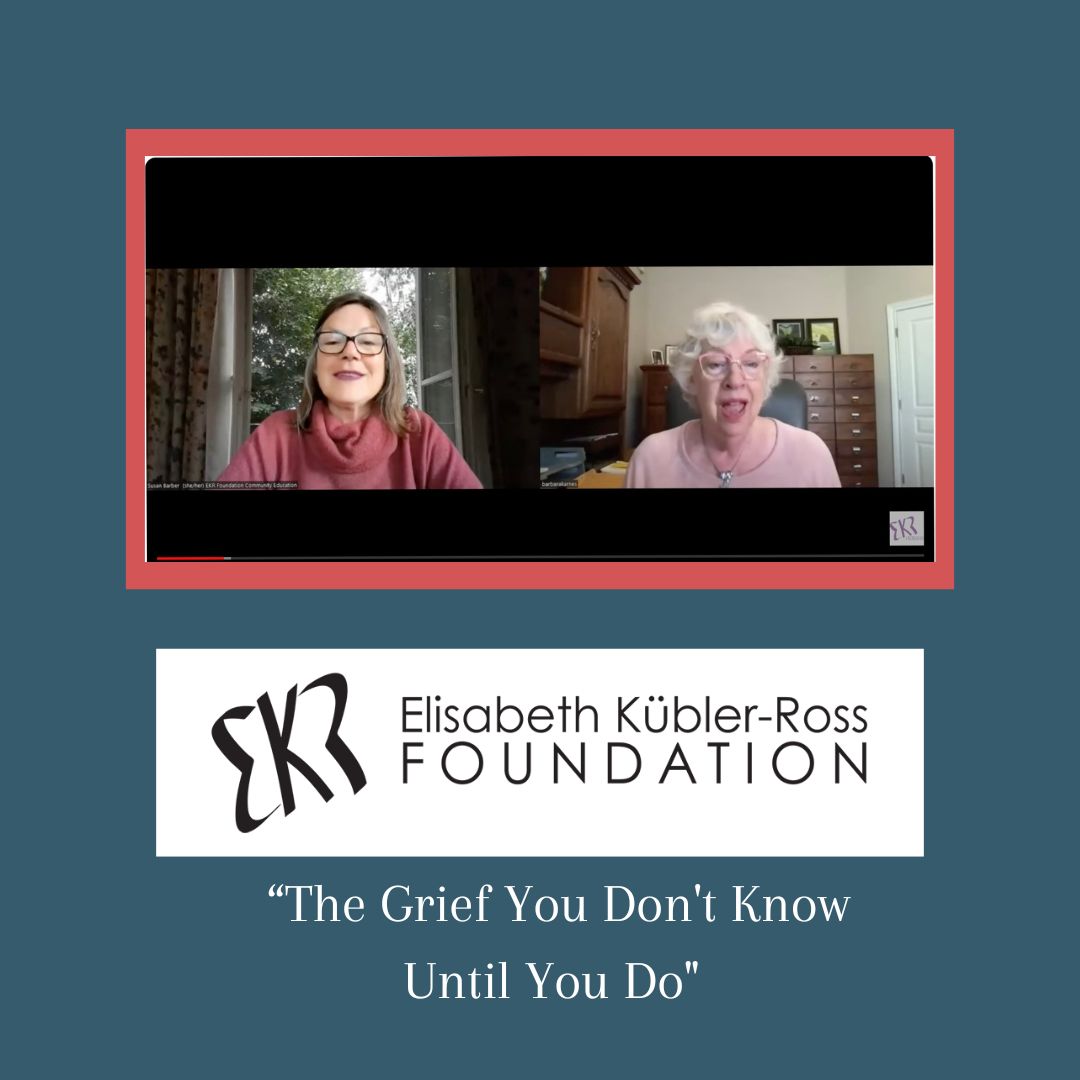In this conversation with long-time hospice nurse and educator Barbara Karnes, she states: “We’ve lost our role models on what it’s like to die, and we’ve lost our role models on how to take care of someone who is dying.” What does she mean? What are we missing? What would be the benefit of learning more, for the dying as well as for those who are caregiving and grieving? Barbara shares her thinking on these matters and so much more, including additional thoughts about her personal loss of her husband one year ago.
Resources mentioned in this podcast:
The End of Life Guideline Series
Always Offer, Never Force: Food at End of Life
The Final Act of Living: Reflections of a Long-Time Hospice Nurse
All resources available at www.bkbooks.com








2 comments
Taylor Wendy
So much my story of 42 yrs and my wife living/dying with ALZ.
I am feeling like something very common could take her. If not, it’s a matter of a pound lost here, an inch of upper arm measurement. Such a hugely dragged out life for me to accommodate in balance with my “me” life outside of my visits to Ellen’s memory care.
I’m really having a hard time knowing how to share my life with her going.
———
BK Books replied:
Hi Taylor, one day at a time. Sometimes just getting thru each day is all we can handle without thinking of what is to come. Blessings! Barbara
So much my story of 42 yrs and my wife living/dying with ALZ.
I am feeling like something very common could take her. If not, it’s a matter of a pound lost here, an inch of upper arm measurement. Such a hugely dragged out life for me to accommodate in balance with my “me” life outside of my visits to Ellen’s memory care.
I’m really having a hard time knowing how to share my life with her going.
———
BK Books replied:
Hi Taylor, one day at a time. Sometimes just getting thru each day is all we can handle without thinking of what is to come. Blessings! Barbara
Katharine Halpin
My wife of 42 years was diagnosed in 2015 and is now in the last stages of Alzheimer’s. I’ve done a ton of grief work and feel somewhat prepared. A week ago today she caught the flu from me and had horrible breathing and coughing scared me so much I reached out to the hospice nurse on call and our niece who is a physician. She got some heavy drugs (prednisone and powerful cough syrup) and is much better. But since she has zero physical ailments, it will likely be the flu or something that comes up and takes her. My concern now is her suffering. I don’t want her to suffer. The eating guidance is very helpful. What else should I do at this stage?
———
BK Books replied:
Hi Katharine, sounds like you’re doing a wonderful job of caring for her. Since her only diagnosis is alzheimers I do not see her future as being physically painful. She may reach a point where she doesn’t swallow, just holds the food in her mouth. At that point artificial feeding can introduce suffering. The good thing is you don’t have to begin artificial feeding. She will probably eat less, sleep more. You may find my booklets How Do I Know You, Gone From My SIght *and The Eleventh Hour *helpful. Blessings! Barbara
My wife of 42 years was diagnosed in 2015 and is now in the last stages of Alzheimer’s. I’ve done a ton of grief work and feel somewhat prepared. A week ago today she caught the flu from me and had horrible breathing and coughing scared me so much I reached out to the hospice nurse on call and our niece who is a physician. She got some heavy drugs (prednisone and powerful cough syrup) and is much better. But since she has zero physical ailments, it will likely be the flu or something that comes up and takes her. My concern now is her suffering. I don’t want her to suffer. The eating guidance is very helpful. What else should I do at this stage?
———
BK Books replied:
Hi Katharine, sounds like you’re doing a wonderful job of caring for her. Since her only diagnosis is alzheimers I do not see her future as being physically painful. She may reach a point where she doesn’t swallow, just holds the food in her mouth. At that point artificial feeding can introduce suffering. The good thing is you don’t have to begin artificial feeding. She will probably eat less, sleep more. You may find my booklets How Do I Know You, Gone From My SIght *and The Eleventh Hour *helpful. Blessings! Barbara